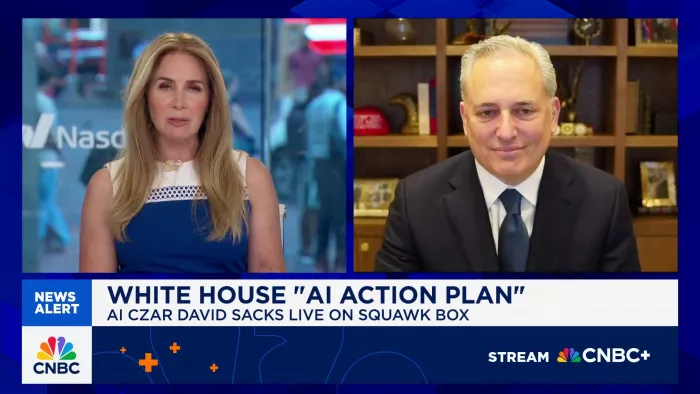
In a significant pushback against widespread anxieties, David Sacks, the influential White House AI and crypto czar, has publicly dismissed the notion of Artificial Intelligence leading to an immediate societal collapse or mass unemployment. Taking to social media, Sacks branded the 'doomsday' narrative of AI swiftly achieving 'godlike superintelligence' as significantly 'overhyped,' offering a more grounded perspective on the technology's evolution and its true impact on the workforce.
Debunking AI Doomsday Scenarios: A Calmer Outlook
For months, the discourse around AI has been dominated by concerns ranging from autonomous systems taking over jobs en masse to the existential threat of superintelligent AI. However, David Sacks AI job impact assessment suggests a starkly different reality. His comments aim to temper the sensationalism, highlighting that while AI's advancements are undeniable, the more extreme predictions often lack a realistic timeline or fundamental understanding of current capabilities.
Sacks’s position is particularly noteworthy given his role at the heart of U.S. technology policy. His insights provide a valuable counter-narrative to the alarmist headlines, advocating for a balanced view that recognizes AI's potential without succumbing to exaggerated fears. He argues that the concept of 'artificial general intelligence' (AGI) – where AI matches or exceeds human cognitive abilities across various tasks – is not on the immediate horizon in the way some prophets of doom portray it.
Expert Opinion on AI Superintelligence: More Hype Than Reality?
The idea of AI rapidly evolving to a 'godlike' state, capable of autonomous self-improvement at an exponential rate, is a common trope in science fiction and, increasingly, in public debate. However, as a prominent White House AI czar, Sacks's perspective is rooted in a more pragmatic understanding of the technology's current limitations and developmental trajectory. He implies that much of the fear surrounding AI superintelligence overhyped status stems from a misunderstanding of the actual research and development pipeline.
This isn't to say that AI isn't transformative. Rather, Sacks's remarks underscore the importance of distinguishing between theoretical ultimate potential and practical near-term applications. The focus, from his vantage point, should be on understanding how AI can augment human capabilities and improve existing processes, rather than envisioning a rapid, complete replacement of human labor or intellect.
The Future of Work: AI Predictions Beyond Mass Displacement
The most pressing concern for many ordinary individuals revolves around the future of work AI predictions. Will robots and algorithms truly render vast swathes of the population jobless? Sacks's statements lean towards a more optimistic, or at least less catastrophic, vision. Historically, technological revolutions have created new jobs even as they've automated old ones. While AI will undoubtedly reshape industries, the complete eradication of human labor is, in his view, an 'overhyped' fantasy.
Instead of wholesale job destruction, experts often foresee a shift in job roles, requiring new skills and fostering a demand for human-centric tasks that AI cannot replicate. Creative problem-solving, emotional intelligence, and complex decision-making remain firmly in the human domain. The ongoing dialogue within the U.S. administration, guided by White House AI czar insights like Sacks's, appears to be focused on managing this transition effectively, rather than preparing for an immediate apocalyptic scenario.
Ultimately, David Sacks's intervention serves as a crucial reminder that while AI is a powerful and evolving technology deserving of serious consideration, it's essential to ground discussions in reality. The narrative of instantaneous 'godlike superintelligence' and immediate mass unemployment, he suggests, distracts from the more practical challenges and immense opportunities that AI presents for society.


Comments